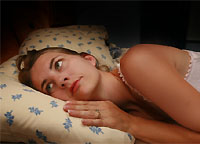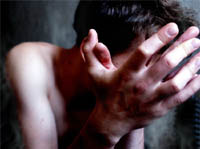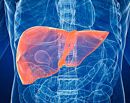Narcolepsy is very easy to adopt for mental disorder, too much different manifestations has this disease. Meanwhile, it is just a sleep disorder that recently meets more and more. Read more about the reasons and manifestations of narcolepsy in the article.
Content
One of the 2000 people suffers from narcolepsy. The disease has a significant impact on human life and even makes it disabled. These facts about narcolepsy may not know, but if you suffer this disease, you can imagine how serious this problem is.
Narcolepsy - sleep disorder, manifested by constant drowsiness and a tendency to sleep in an inappropriate time. In narcolepsy, a person usually suffers from «Atak» sleep, and also experiences constant drowsiness and feeling of fatigue that persist, despite any duration of sleep. Unrecognized and uncontrolled narcotepsy can extremely negatively affect the quality of the patient's life.
Recent achievements in medicine, technologies and pharmacology helped doctors to diagnose and treat this disease. Although the method of treating narcolepsy has not yet been found, most people suffering from this disease can lead an almost normal lifestyle with appropriate treatment.
Reason for the development of narcolepsy
Although the exact reason is not known, narcolepsy, apparently, is a disease of the brain part controlling the process of sleep and wakefulness. Catapieration and paralysis of sleep are like loss of muscular tone accompanying normal dreams. However, people who suffer from narcolepsy, these phenomena (loss of muscle tone and the feeling of dreams) arise in an inappropriate time.
Psychiatric and psychological problems are not the cause of narcolepsy. Sometimes the emergence of narcolepsy is family character. At the same time, many people suffering from narcolepsies have no relatives with such a disease. During recent studies in patients with narcolepsy, a reduced brain chemical ingredient level was discovered - hypochretin. Some researchers believe that the problem is related to the gene responsible for hypocretin products. The combination of genetic disorders with personal life factors can lead to the occurrence of the disease.
The main manifestations of narcolepsy
Most often, narcopsy is manifested by the following symptoms:
- excess daytime drowsiness;
- cataplectric (sudden loss of muscle strength);
- «paralysis» sleep (feeling of immobility during sleep);
- Hallucinations arising immediately before falling asleep during daytime sleep and / or when awakening.
In most cases, excess daytime drowsiness is the most disturbing symptom. Symptoms of narcolepsy may appear all immediately or develop gradually for many years.
 Catapieration is usually provoked by strong emotions, such as laughter, rage or surprise. Excess daytime drowsiness is present in all patients with narcolepsy and is usually the first symptom. People who suffer from narcolepsy say they feel constantly tired or drowsy. They tend to fall asleep not only in situations in which many people feel natural drowsiness (after eating or during the boring lecture), but also when most people continue to be awake (during a conversation, when writing a letter or watching the film). These sleep episodes are usually short and refreshing only for a short time. Persons with narcolepsy may be treated or feel crimped in consciousness at the most unusual time, even in dangerous situations, for example, when driving a car.
Catapieration is usually provoked by strong emotions, such as laughter, rage or surprise. Excess daytime drowsiness is present in all patients with narcolepsy and is usually the first symptom. People who suffer from narcolepsy say they feel constantly tired or drowsy. They tend to fall asleep not only in situations in which many people feel natural drowsiness (after eating or during the boring lecture), but also when most people continue to be awake (during a conversation, when writing a letter or watching the film). These sleep episodes are usually short and refreshing only for a short time. Persons with narcolepsy may be treated or feel crimped in consciousness at the most unusual time, even in dangerous situations, for example, when driving a car.
Catapygia attacks - sudden, short-term loss of muscle tone - sometimes the first symptom of narcolepsy, but much more often develops months or years after the appearance of drowsiness. Cataplexia may be easy, manifested by a short-term sense of weakness in the knees, or can cause a full physical collapse, leading to a fall. Persons who occur like attacks are in wakefulness and understand what is happening. Catapieration is usually provoked by strong emotions, such as laughter, rage or surprise. Some people have attacks may be caused by simply memories, expectation of emotions or anxious situation.
Sleep and hallucination paralysis
Sleep paralysis - also short-term loss of muscle control, but arising at the moment of falling asleep or when awakening. The patient can a certain extent to know what is happening, but not able to move or speak. Sleep paralysis can be frightening, but it is not dangerous.
Hallucinations - bright, similar to the dreams of experience, arising when the patient begins to darish. Hallucinations may include concerns and sounds, such as unusual animals or robbers. These hallucinations can be frightening, and since the patient partially awakes, it does not have control over what is happening events. Dreams can also cause experiences if they are mistakenly taken for hallucinations caused by mental diseases.
 Automatic behavior is the patient's execution of ordinary tasks without aware of their actions. Sometimes the patient can actually fall asleep and continue the activity, but do not remember this after awakening. Automatic behavior may be a symptom of narcolepsy and rushes a threat if a person performs potentially dangerous actions, such as driving a car or cooking.
Automatic behavior is the patient's execution of ordinary tasks without aware of their actions. Sometimes the patient can actually fall asleep and continue the activity, but do not remember this after awakening. Automatic behavior may be a symptom of narcolepsy and rushes a threat if a person performs potentially dangerous actions, such as driving a car or cooking.
For those who suffer from narcolepsy, it is often problematic both awake during the day and sleep well at night. In such cases, daylightness is enhanced by a large number of night awakens.
Persons suffering from narcolepsy often report on the following symptoms: bias in the eyes, inability to concentrate attention, memory loss and headaches. Children with this disease often lagging behind the peers in physical development and study. Adults may not be able to perform everyday duties at work.
If you have found any of the above symptoms of narcolepsy and believe that these symptoms affect your ability to manage transport, learn at school, to fulfill the usual daily work or if these symptoms affect your social activities and personal relationships, then for you it is very important contact a professional in matters of sleep medicine.









